The Evil Compiler
The Evil Compiler
This code include 2 core statement
cout<<*str<<endl;
cout<<*str++<<endl;
But it will give a different result
cout<<*str<<endl<<*str++<<endl;
Run this code in VS2013
#include <iostream>
using namespace std;
int main()
{
char* str = "abcdefg";
char* str_h = str;
// 1st statement
cout <<"*str= "<< *str << " pos= " << str - str_h<<endl;
// 2nd statement
cout << "*str++= " << *str++ << " pos= " << str - str_h << endl;
cout<<"pos= " <<str - str_h <<endl;
cout << endl<< "str = str_0" << endl << endl;
str = str_h;
// 3rd statement
cout << "*str= " << *str << " pos= " << str - str_h << endl
<< "*str++= " << *str++ << " pos= " << str - str_h << endl;
cout<<"pos= " <<str - str_h <<endl;
char t;
cin >> t;
return 1;
}
Here is the result:
VS2013
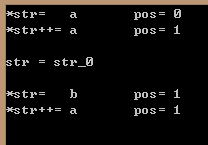
The 3rd statement give an obvious wrong.
cout<< *str <<endl<< *str++ <<endl;
I believe this is the compilier doing. I guess the compiler try to optimize the increment(++) operation by execute the statement with ++ first. So the code execution sequence is
//cout<<*str<<endl<<*str++<<endl;
*str // the last one, so the output is 'a'
str++ //
*str // the first one
g++4.8.2
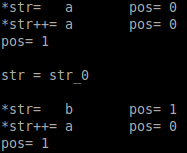
For g++ even the 2nd statement is “wrong” When execute
cout << "*str++=" << *str++ << " pos= " << str - str_h << endl;
the output str - str_h should be executed after str++, so it’s pos should be 1
But here str - str_h is obviously executed after str++, so it’s pos is 0;
Then in the next line, the pos afterwards is 1
Reference
But in this case, I guess sequence point doesn’t matter, because the computation of *str and *str++ individually are well defined. But it is the sequence of executing them make the difference.
- This answer observes that just because the
++comes after the variable does not mean that the increment happens late. The increment can happen as early as the compiler likes as long as the compiler ensures that the original value is used.
Conclusion
The reason of this strange behavior is that the statement is an Undefined Behavior(UB). So there is no standard to define the execution of this statement. Thus the compiler could do whatever to optimize the code and in both MSVC and GCC does optimization in a way we didn’t expect.
Update
It turns out that C++ primer (5th edition) already covered this.
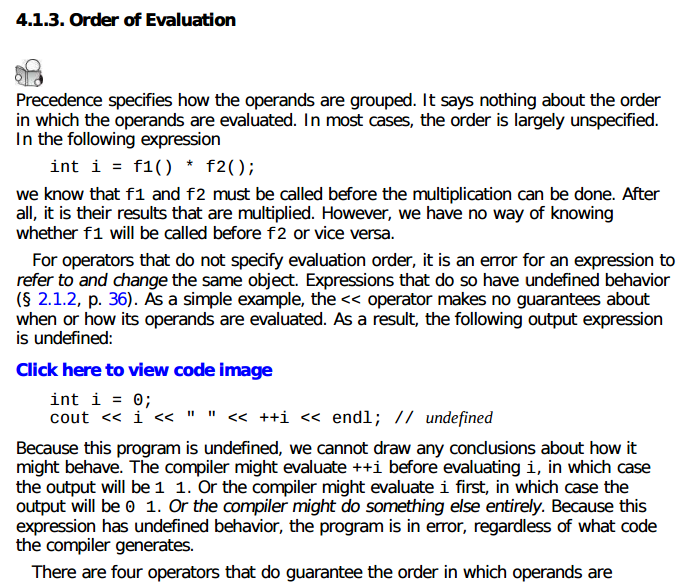
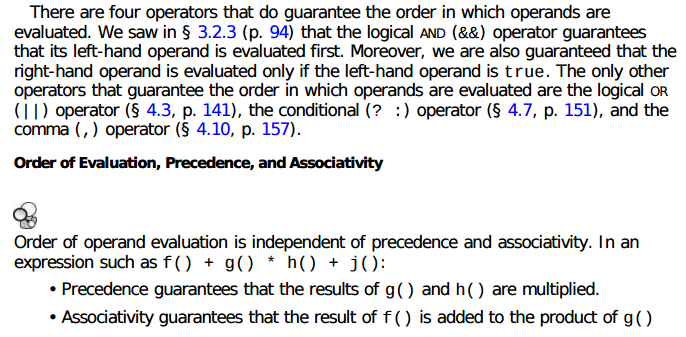
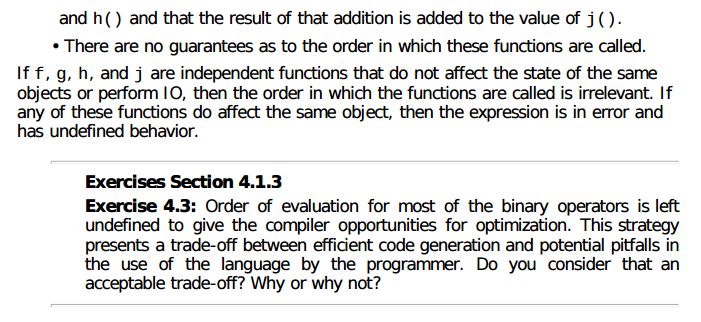
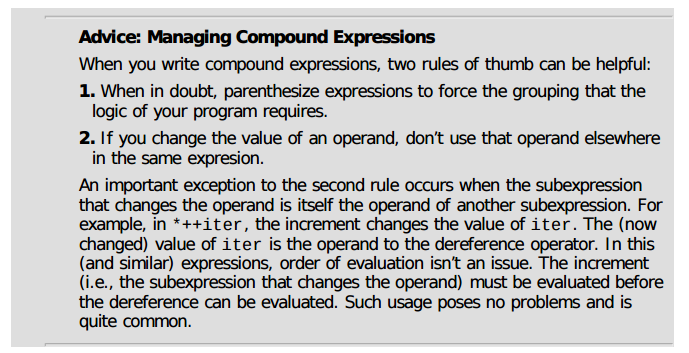
C++
C++ skills
